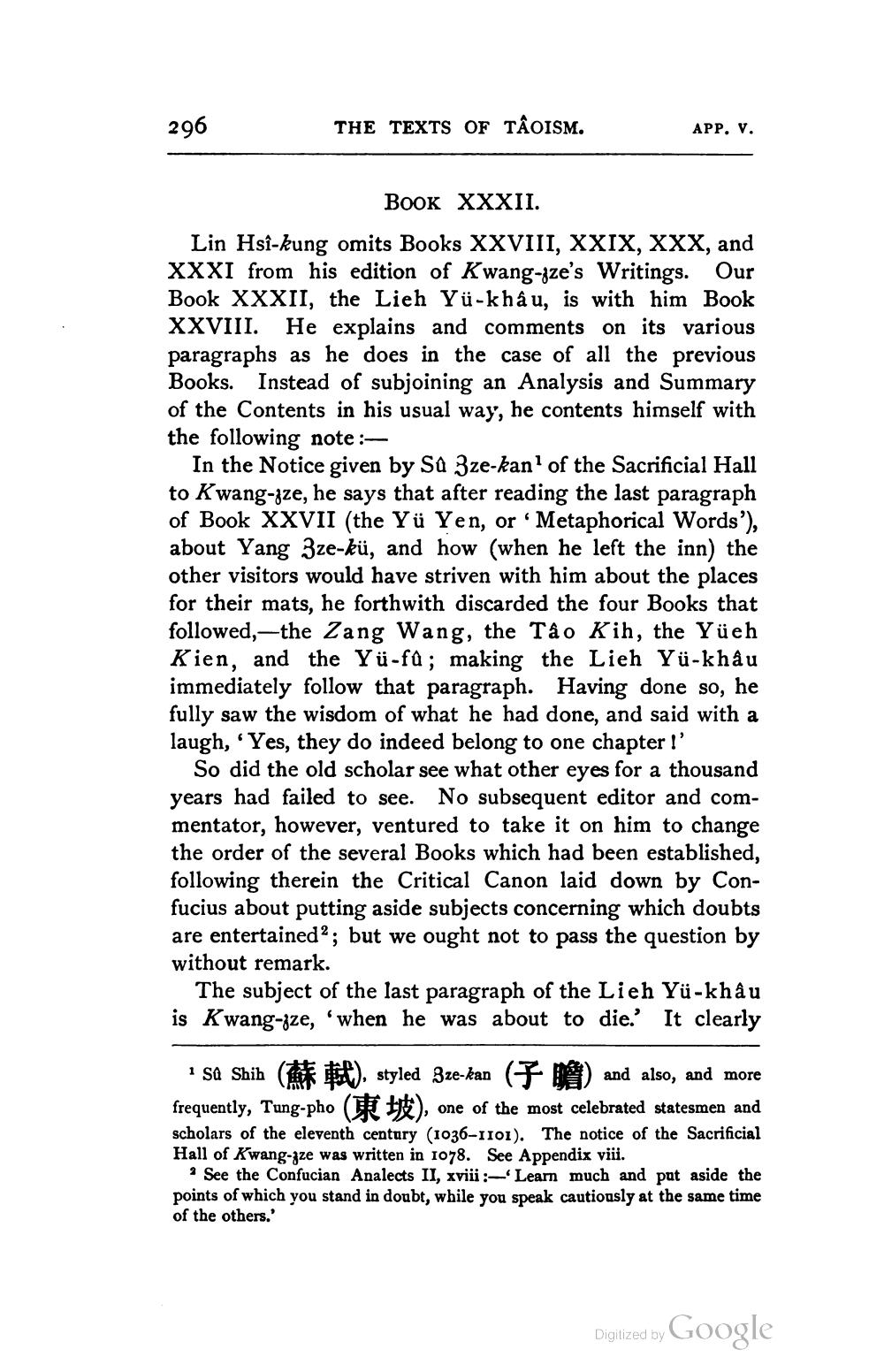________________
296
THE TEXTS OF TAOISM.
APP. V.
BOOK XXXII.
Lin Hsi-kung omits Books XXVIII, XXIX, XXX, and XXXI from his edition of Kwang-ze's Writings. Our Book XXXII, the Lieh Yü-khâu, is with him Book XXVIII. He explains and comments on its various paragraphs as he does in the case of all the previous Books. Instead of subjoining an Analysis and Summary of the Contents in his usual way, he contents himself with the following note:
In the Notice given by Sû 3ze-kan1 of the Sacrificial Hall to Kwang-zze, he says that after reading the last paragraph of Book XXVII (the Yü Yen, or 'Metaphorical Words'), about Yang 3ze-kü, and how (when he left the inn) the other visitors would have striven with him about the places for their mats, he forthwith discarded the four Books that followed, the Zang Wang, the Tâo Kih, the Yüeh Kien, and the Yü-fû; making the Lieh Yü-khâu immediately follow that paragraph. Having done so, he fully saw the wisdom of what he had done, and said with a laugh, 'Yes, they do indeed belong to one chapter!'
So did the old scholar see what other eyes for a thousand years had failed to see. No subsequent editor and commentator, however, ventured to take it on him to change the order of the several Books which had been established, following therein the Critical Canon laid down by Confucius about putting aside subjects concerning which doubts are entertained2; but we ought not to pass the question by without remark.
The subject of the last paragraph of the Lieh Yü-khâu is Kwang-ze, 'when he was about to die.' It clearly
1 Så Shih(), styled 3ze-kan (†) and also, and more frequently, Tung-pho(), one of the most celebrated statesmen and
scholars of the eleventh century (1036-1101). The notice of the Sacrificial Hall of Kwang-jze was written in 1078. See Appendix viii.
* See the Confucian Analects II, xviii:-'Learn much and put aside the points of which you stand in doubt, while you speak cautiously at the same time of the others.'
Digitized by Google




